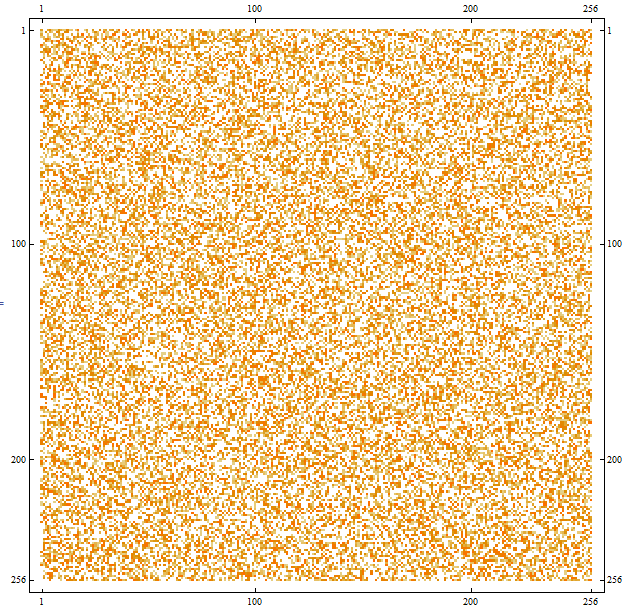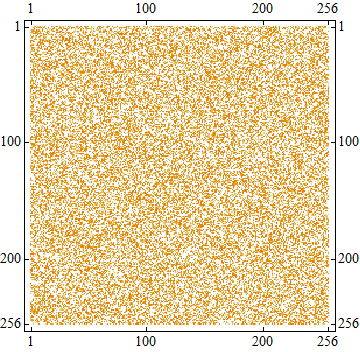I have a set of (x,y,z) data, 45,000 to be precise and I want to bin the z values in 256 equidistant bins based on their (x,y) values. The final array should be a set of 256x256 array with each slot containing an average of binned z values.
Being new to mathematica, I came up with the following code:
data = RandomReal[{12000, 35000}, {45000, 3}];
data1 = data[[All, {1, 2}]];(*strip the zvalues from the set*)
xValues = data[[All, 1]];
yValues = data[[All, 2]];
zValues = data[[All, 3]];
(*Compute maximum/minimum of x values*)
maxXvalue = Max[xValues];
minXvalue = Min[xValues];
(*Compute maximum/minimum of y values*)
maxYvalue = Max[yValues];
minYvalue = Min [yValues];
(*Compute maximum/minimum of z values*)
maxZvalue = Max[zValues];
minZValue = Min[zValues];
bbx = {Floor[minXvalue], Floor[maxXvalue],
Floor[((maxXvalue - minXvalue)/256)]}; (* equidistant x bins*)
bby = {Floor[minYvalue], Floor[maxYvalue],
Floor[((maxYvalue - minYvalue)/256)]};(* equidistant y bins*)
bList = BinLists[data1, {bbx}, {bby}];
bCount = BinCounts[data1, {bbx}, {bby}];(*Gives a count of the number of items in \
each bins*)
(*Defining array to contain final z average values*)
meanZValues = Table[0, {Length[bList]}, {Length[bList]}];
i = 0; (*initialising loop variables*)
j = 0;
k = 0;
f[x_] := zValues[[x]];(*Defining function to get z values back*)
For[i = 1, i <= Length[bList], i++,
For [j = 1, j <= Length[bList], j++, m1 = {}; (*Re-empty m1 list*)
For [k = 1, k <= Length[bList[[i, j]]], k++,
AppendTo[m1, Position[data1, bList[[i, j]][[k]]] (*accessing only the x-
coordinate index of the position on original matrix*)
];
(*Getting the indices of the binned values*)
indices = Flatten[DeleteDuplicates[Take[m1, All]]]; (*Position command above gives multiple indices if these values occur more than once, hence deleting the duplicate ones*)
meanZValues[[i, j]] = Mean[Map[f,indices]]; (*Compute average values of Z by accessing the original array, getting the z values *)
]
]
]
meanZValues
It gives an output in a reasonable amount of time for up to couple of thousand values, however, it lags and maybe crashes without any output for 45,000 set of data.
How do I make this code more efficient? Thank you


